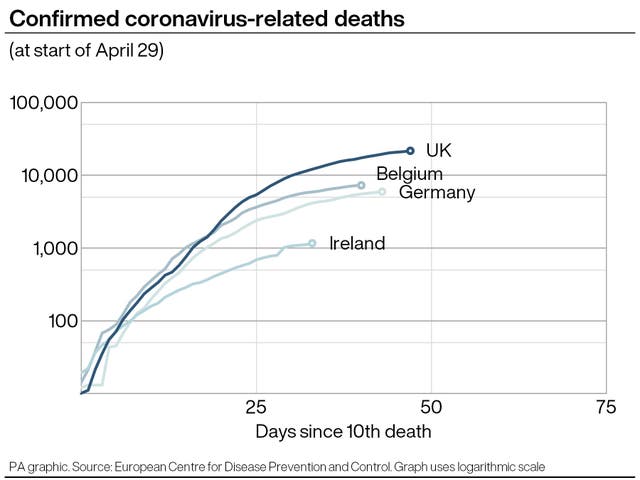Coronavirus more common and severe in deprived areas, app data suggests
Areas with higher rates of poverty will need a greater supply of PPE, one scientist warns.

People living in urban and the most deprived areas of the UK could be more exposed or vulnerable to coronavirus, the latest data from a symptom tracking app suggests.
Scientists analysing results from the Covid-19 Symptom Tracker app have found that the virus is disproportionately more common and more severe in those located in urban areas and regions of higher poverty.
“This could reflect that individuals in more deprived areas are more exposed or vulnerable to the virus,” said Dr Cristina Menni, lead researcher from King’s College London.
“It may be that they work in jobs requiring work out of the home, where they are more likely to be exposed to circulating virus.
“We know from previous research that deprivation is closely linked with increased health issues and disease burden; our results suggest that Covid-19 is no exception.”
However, they say the data also indicates that cases and severity has decreased since the lockdown began.
The analysis was based on more than two million people in the UK who used the app to log their daily health status over 24 days immediately after social distancing measures were introduced.
Their findings have been published in a pre-print paper, which is yet to be peer reviewed.

“This finding is important for allocation of resources in this pandemic,” added Dr Claire Steves, joint senior author from King’s College London.
“Areas with higher rates of poverty will need greater supply of PPE (personal protective equipment) and more hospital capacity. This is likely to continue to be important when the social distancing measures are eased.”
Earlier this week, data from the app suggested that some people may be more susceptible to coronavirus because of their genetic make-up.
After studying entries from twins, scientists believe that genes are 50% responsible for the presentation of key symptoms of Covid-19 including fever, fatigue and loss of taste and smell.





